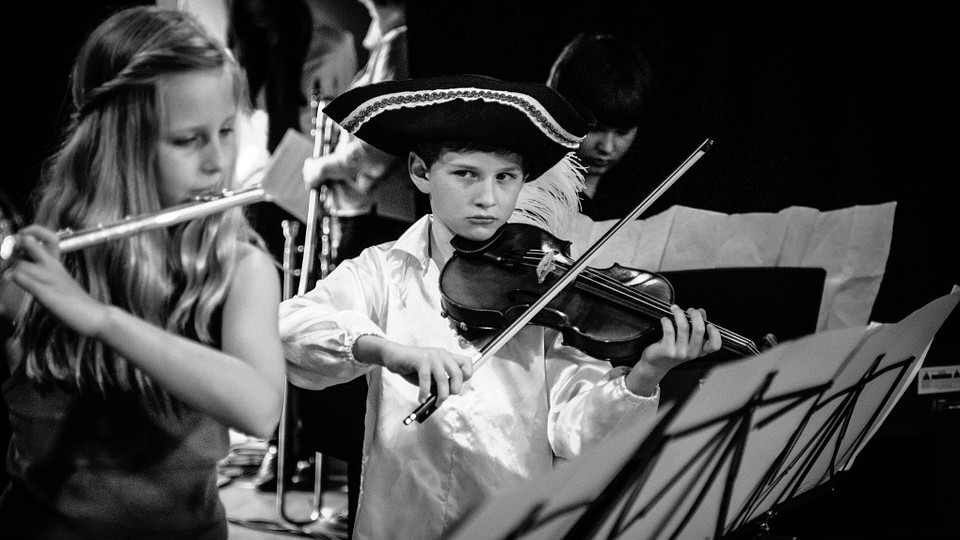Which instrument is the most difficult to play?
Whether music is your profession or a hobby from your childhood, chances are likely that you’ve participated in this age-old debate. Or at the very least, you’ve given it some thought. Usually, it’s a mild-mannered discussion; but I’ve seen things get heated.
Some of the talking points may have included:
- Brass instruments require a lot of air to play a rather small number of notes.
- The slightest change in temperature can wreak havoc on woodwind instruments.
- Percussionists must have rock-steady hands; any hint of shaking can ruin the integrity of their sound.
- String players must also be tremble-free, not to mention their need for fast fingers.
- Guitarists have thousands of years’ worth of genres to master.
- Harpists have all those pedals to worry about.
- Pianists have all those keys to worry about.
- Vocalists are constantly at the mercy of the health of their bodies.
After four years in music school, five years in training orchestras, and four years as a full-time professional musician, I have finally arrived at an answer to this question.
Here is the definitive list.
The 3 Most Difficult Musical Instruments
- Not the instrument that I play.
- Not the instrument that you play.
- Nobody’s instrument.
(Ah, click-bait…)
The truth is, this debate is absurd. Every musical instrument has its inherent difficulties, shortcomings, or obstacles. Any attempt to measure the extent to which they give us trouble is completely counterproductive. Two big reasons come to my mind, but as always, feel free to add your thoughts in the comments below.
First, it opens the door for us to develop negative self-fulfilling prophecies. These can easily resurface in the practice room, or even worse, onstage.
For example, a trombonist is in the midst of a performance. Fresh in her mind is a conversation from earlier in the day, when she was convincing friends how difficult it is to smoothly connect two notes while moving the trombone slide a long distance.
She must now execute this task in her performance. She says to herself, “Getting from this F-natural to that F-sharp without disrupting the sound is going to be really hard. I’m going to mess this up…here it comes…Great. I messed it up.” Rather than thinking about the music and trusting her hard work in the practice room, the words from that earlier chat threw her off her game.
Second, we sabotage the solidarity that helps us successfully play together.
Let’s say a bassoon student and a tuba student have this argument just before an orchestra rehearsal.
Bassoon Student: I have so many more keys on my instrument than you do, and you have fewer notes to learn for your orchestra parts. The bassoon is more difficult.
Tuba Student: It takes more air for me to produce one note than it does for you. And the tuba is so much louder than the bassoon. Everyone hears my mistakes, but you can easily hide yours. The tuba is more difficult.
The conversation leaves them both feeling differently. The Bassoon Student holds the arrogant belief that his classmate doesn’t have to work as hard, and thus mastering the bassoon is a more monumental achievement. The Tuba Student, on the other hand, is marginalized and feels that her hard work is under-appreciated.
During rehearsal, they reach a passage in which the composer has written a duet for bassoon and tuba. Will they be thinking about making music together? Or will they will be distracted by how their discussion made them feel?
I think it’s safe to say all of us musicians have been either (or both) the Bassoon Student or the Tuba Student at some point. Even if our conversations weren’t harsh on the surface, they still opened the door for needlessly unfavorable things to happen.
Imagine if those students had this exchange instead:
Bassoon Student: Your sound is like velvet. When you and the double basses play together, it creates such a rich foundation for the orchestra.
Tuba Student: Oh, thank you. I admire how expressively you play. I can tell you’ve spent a lot of time thinking about how you want to perform your solos.
Rather than create a dialogue of negativity and competitiveness, it is much more worthwhile to celebrate what we all bring to the table. We pour a great deal of our lives into this art-form, and we owe it to ourselves to delight in the many ways in which we harness sound to create truly awesome moments.
Just a quick disclaimer. This post is by no means whatsoever a way to “vent” about people in my life. There was no “Bassoon Student vs. Tuba Student” type of fight that I’ve witnessed amongst colleagues, and moreover, I feel incredibly lucky to work with such supportive people. I’ve simply had these ideas in my head for a while now, and I am finally able to put them into words. I’d also like to mention that this post promotes an equitable outlook on each instrument’s demands; it does not pertain to differences in compensation that may exist among the various positions of a musical ensemble.
Subscribe via Email
Enter your email address to subscribe and receive notifications of new posts on the first Monday of each month by email.



There’s ‘most difficult to play’ and then there’s ‘most difficult to play exceptionally well in a orchestral setting’. I’d argue that the triangle is the easiest instrument in the world to play, and the most difficult to play exceptionally well…etc. More difficult than my baton, that’s for sure!
It’s funny isn’t it? Some instruments appear to be so easy, but it takes so much work to do it right–and I would argue that baton technique falls in that category. (Not to mention all the score study!)
I went to my kiddo’s music camp concert the other day, and of four conductors, it was the ‘legend in the business’ who got the best sound out of the ensemble, by far. When I asked Kiddo what he thought of the conductors, he informed me that Legend wasn’t very good, it was the up-and-coming legend who was the best. Turns out , Up and Coming was the one whose rehearsals were most enjoyable because he was careful not to stop too often, and never left a section hanging just before getting to their good part. All of which is to say, I think perspective is everything. P.S. trombone looks sooooo easy 😉
1. Bassoon.
2. Bassoon.
3. In no uncertain terms, bassoon.
I am that bassoon student, and your argument on the topic is flawed insofar as it confuses the concept of loud with the concept of good. Your question wasn’t “which is the most difficult to play well,” so all the egalitarian ephemera about a constructive atmosphere for musical development is nice, but doesn’t logically follow.
And for the record, you should have made a list.
Thanks for contributing, Rebellious bassoonist. I learned a new word today, I had to look up “ephemera”–so, thank you for that, too. If making music in a collaborative setting is among your quests in this industry, I hope you’re able to transcend any anxieties or self-righteousness that instrument-to-instrument comparisons might bring you. Best wishes.
Hi, Doug — psychology can be almost an afterthought for a lot of people. We think first of the physical or mental demands of our professions rather than the psychological or emotional. You write about a very important point in this post for any artist. For writers, it’s facing the blank page and thinking, “How am I going to fill up that space? I can’t do that.” Dealing with self-doubt is a constant, and while it can sabotage, it can also provide the impetus to strive for excellence. Thanks for the post! Cinda
Glad you liked it! I think we’re kindred spirits, I seem to be continually fascinated by psychological influences in music and life in general.